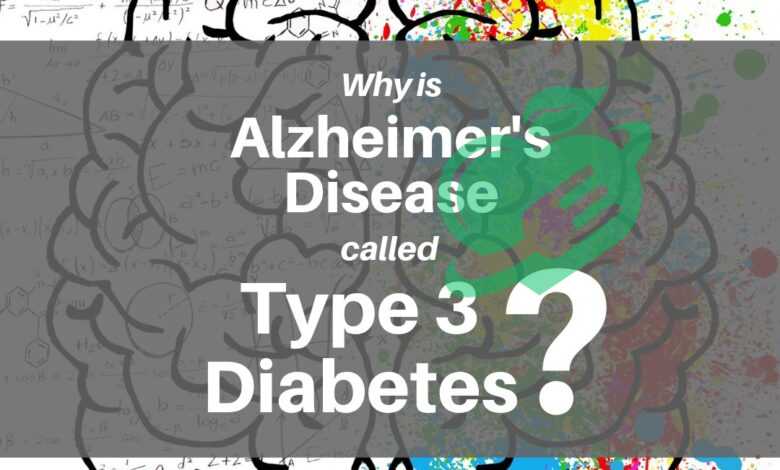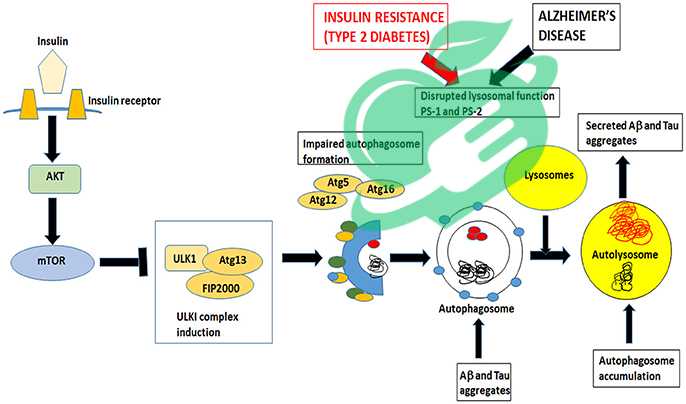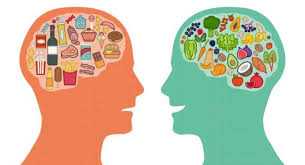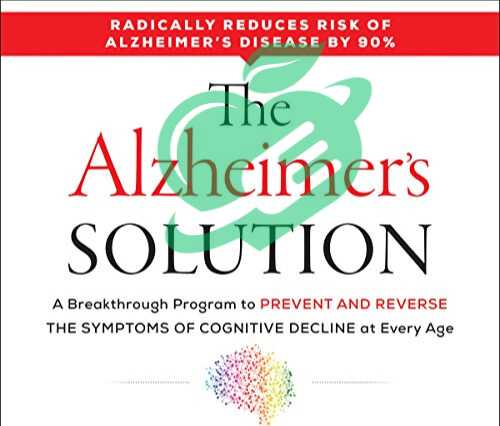Unlocking the Secrets of Alzheimer’s and Diabetes 3: A Comprehensive Guide

Connection Between Alzheimer’s and Diabetes 3
Research suggests a significant link between diabetes and an increased risk of developing Alzheimer’s disease. Both conditions share similar pathways related to inflammation and insulin resistance. For instance, the blood sugar spikes associated with diabetes can negatively affect brain health over time. Understanding these connections can empower individuals with diabetes to take proactive steps to protect their cognitive health.Understanding Alzheimer’s Disease 3
What is Alzheimer’s Disease 3?
Alzheimer’s disease is a progressive neurological disorder that primarily affects memory and cognitive function. Often described as more than just forgetfulness, it gradually diminishes a person’s ability to think, reason, and perform daily tasks. For instance, a family member may start misplacing common items or struggling to recall recent conversations, leading to noticeable frustration and confusion.
Causes and Risk Factors- Alzheimer’s and Diabetes 3
While the exact causes of Alzheimer’s remain unclear, several risk factors have been identified, including:
- Age: The risk increases significantly after age 65.
- Genetics: Family history can elevate risk levels.
- Lifestyle: Conditions like diabetes, obesity, and cardiovascular issues can contribute to cognitive decline.
- Head Trauma: Previous severe head injuries have been linked to higher chances of developing the disease.
Symptoms and Diagnosis- Alzheimer’s and Diabetes 3
The symptoms of Alzheimer’s typically worsen over time. Common early indicators include:
- Memory loss, especially recent events
- Confusion about time or place
- Difficulty with language and communication
Diagnosing Alzheimer’s involves a combination of medical history, cognitive tests, and imaging studies. Early detection can facilitate better management strategies, ultimately improving the quality of life for those affected.

Exploring Diabetes- Alzheimer’s and Diabetes 3
Diabetes is a chronic condition that affects how the body processes blood sugar, or glucose. This can lead to various health complications, including issues with the heart, kidneys, and nervous system. For many individuals, managing diabetes is a daily routine that includes monitoring blood sugar levels, adhering to a strict diet, and staying active.
Types of Diabetes
There are mainly three types of diabetes:
- Type 1 Diabetes: An autoimmune condition where the body doesn’t produce insulin.
- Type 2 Diabetes: More common and often associated with obesity; it occurs when the body becomes resistant to insulin.
- Gestational Diabetes: A temporary form of diabetes that occurs during pregnancy, usually resolving after childbirth.

Shared Mechanisms and Links
Common Pathways in Alzheimer’s and Diabetes 3
Both Alzheimer’s and diabetes share underlying mechanisms that affect brain health. Chronic inflammation, oxidative stress, and metabolic dysfunction are critical pathways where these diseases intersect. For example, elevated blood sugar affects not only overall health but can also lead to cognitive decline over time.
Impact of Insulin Resistance
Insulin resistance, a key feature of Type 2 diabetes, can significantly impact brain function. When the brain becomes resistant to insulin, it struggles to use glucose for energy, which is crucial for memory and learning. This can manifest in symptoms similar to early Alzheimer’s, such as confusion and memory lapses.
Neurovascular Dysfunction
Additionally, neurovascular dysfunction plays a vital role in both conditions. Poor blood flow to the brain can exacerbate the symptoms of Alzheimer’s and contribute to the cognitive decline experienced in diabetes. By nurturing strong vascular health through lifestyle changes, individuals can potentially mitigate the risks associated with both diseases.
Read also: Diabetic Retinopathy ICD 10 Coding Made Simple

Lifestyle Changes and Management
Diet and Nutrition Recommendations- Alzheimer’s and Diabetes 3
To support brain health and manage diabetes, adopting a balanced diet is key. Focus on:
- Whole grains like brown rice and quinoa
- Fruits and vegetables that are rich in vitamins and antioxidants
- Lean proteins such as fish and poultry
- Healthy fats from nuts and avocados
Eliminating processed sugars and limiting saturated fats can lead to better blood sugar control and cognitive function.
Physical Activity and Its Effects
Regular physical activity is another cornerstone of health management. Engaging in aerobic exercises, like walking or cycling, boosts circulation and reduces insulin resistance while improving mood. For instance, a brisk 30-minute walk can be both invigorating and beneficial for brain health.
Stress Management and Quality Sleep- Alzheimer’s and Diabetes 3
Finally, managing stress through mindfulness practices, such as yoga or meditation, can have a profound impact on overall well-being. Quality sleep is equally important; aiming for 7-9 hours a night helps the body recover and consolidate memories, essential for preventing cognitive decline. By incorporating these lifestyle changes, individuals can foster better health and enhance their quality of life.

Medical Interventions and Therapies
Medications for Alzheimer’s and Diabetes 3
For individuals managing Alzheimer’s and diabetes, medications play a critical role. Alzheimer’s patients may be prescribed cholinesterase inhibitors, which help improve symptoms, while diabetes management often includes insulin or oral hypoglycemic agents. Regular consultations with healthcare providers ensure that the right medications are chosen based on an individual’s unique health profile.
Innovative Treatments and Clinical Trials
Moreover, innovative treatments are on the horizon for both diseases. Clinical trials exploring potential breakthroughs, such as new drug therapies targeting insulin signaling in the brain, have shown promise. Engaging in these trials can be an opportunity for patients to access cutting-edge treatments while contributing to scientific advancement.
Importance of Regular Monitoring
Finally, the importance of regular monitoring cannot be overstated. Frequent check-ups allow for timely adjustments in treatment plans, ensuring optimal health management. Monitoring blood sugar levels and cognitive function provides a comprehensive overview, empowering individuals to take charge of their health journey effectively.
Read also: Ozempic Diet Success Stories: Real People, Real Results

Prevention Strategies
Risk Reduction Techniques- Alzheimer’s and Diabetes 3
Taking proactive steps can significantly reduce the risk of developing both Alzheimer’s and diabetes. Techniques such as maintaining a healthy weight, eating a balanced diet rich in antioxidants, and avoiding tobacco use are foundational. For instance, replacing sugary drinks with water can make a noticeable impact on overall health.
Cognitive Stimulation Activities
Engaging in cognitive stimulation activities is also beneficial. Puzzles, reading, and learning new skills keep the brain active and can improve cognitive resilience. A personal favorite might be joining a book club, which not only challenges the mind but also fosters social connections.
Early Detection and Intervention
Finally, prioritizing early detection and intervention can’t be understated. Routine health screenings can catch potential issues before they escalate. Simple changes, like tracking blood pressure and glucose levels, combined with regular memory assessments, empower individuals to make informed decisions about their health, paving the way for a healthier future.

Support and Caregiving
Coping Strategies for Patients- Alzheimer’s and Diabetes 3
For patients living with Alzheimer’s or diabetes, developing coping strategies is crucial. Techniques such as maintaining a structured daily routine can provide stability and reduce anxiety. Mindfulness and relaxation exercises, like deep breathing or gentle yoga, also help to manage stress and improve overall well-being. Keeping a journal can be particularly beneficial, allowing for personal reflection and emotional expression.
Support Systems for Caregivers
Caregivers play a vital role, and it’s essential they have their own support systems. Joining caregiver support groups offers a chance to share experiences and coping strategies, which can be incredibly validating. Having friends or family members to lean on for emotional support can help alleviate feelings of isolation.
Community Resources and Services
In addition to personal support, numerous community resources are available. Local organizations often provide education, workshops, and respite care services. These resources can lighten the caregiving load and empower families to navigate the challenges together. By building a solid support network, both patients and caregivers can enhance their quality of life, ensuring they are not alone on this journey.
Read also: Ozempic Diet Success Stories: Real People, Real Results

Research Advances and Future Directions
Current Research Findings- Alzheimer’s and Diabetes 3
Recent studies have revealed significant insights into the complex relationship between Alzheimer’s and diabetes. Research shows that individuals with diabetes have a higher risk of developing Alzheimer’s due to shared inflammatory pathways. For example, a study highlighted that controlling blood sugar levels can help maintain cognitive function.
Promising Breakthroughs
Innovative breakthroughs are emerging, such as drug therapies aimed at reducing insulin resistance in the brain. Certain clinical trials are exploring the effects of anti-diabetic medications on cognitive decline. One notable finding suggests that these medications may slow Alzheimer’s progression, offering hope to patients.
Future Trends and Possibilities
Looking ahead, future research will likely focus on personalized medicine, tailoring treatments based on individual genetic factors and lifestyle. The use of technology, including wearable devices for continuous health monitoring, holds promise for early detection and intervention. As research continues to evolve, the combined efforts of scientists and healthcare professionals could significantly change the landscape of care for those affected by these conditions, fostering a brighter future for patients and families alike.



